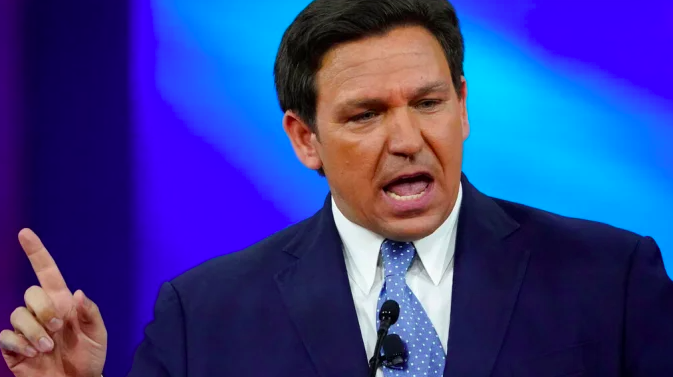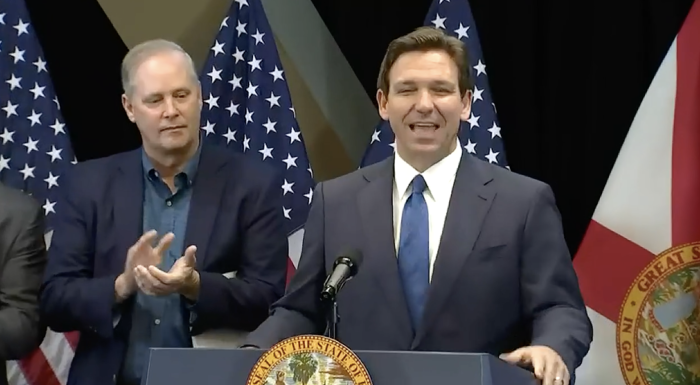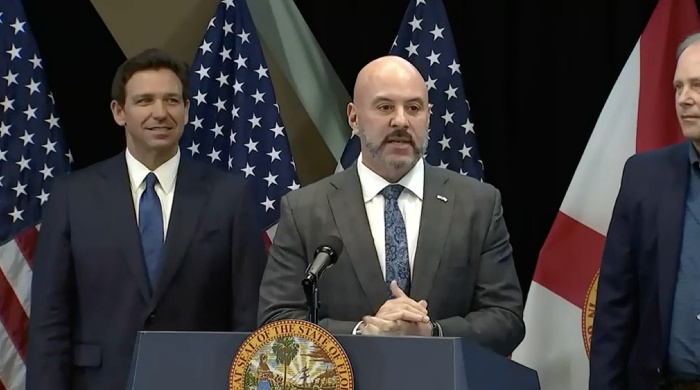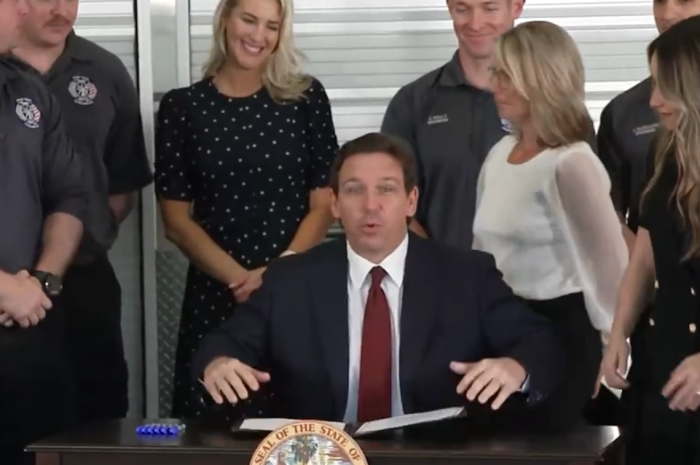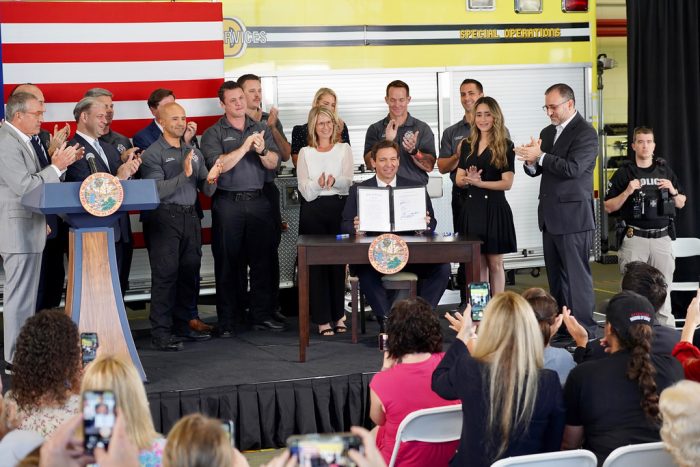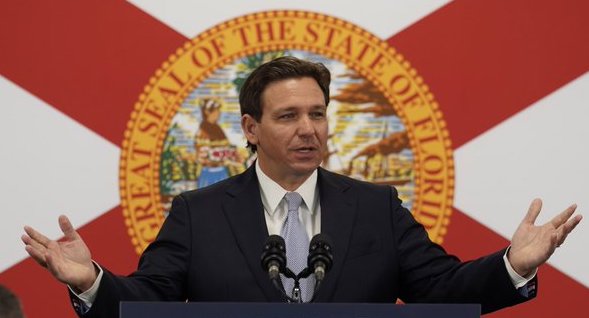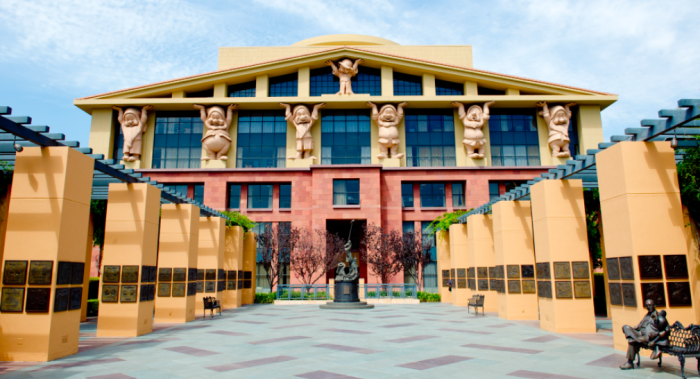The ongoing battle between Florida Governor Ron DeSantis and The Walt Disney Company has reached a tipping point. What first began as apparent retaliation for Disney’s response to the Parental Rights in Education law (often criticized as the “Don’t Say Gay” law) rapidly spiraled into a hostile war between the state government and a massive company.
After outlining his plan of attack against Disney, DeSantis and his newly-appointed Central Florida Tourism Oversight District Board (formerly the Reedy Creek Improvement District) granted themselves “superior authority” and declared the previous Board’s agreements with Disney to be void. Disney swiftly responded by suing the governor and the entire District Board in federal court. That hasn’t seemed to dissuade DeSantis, though, and now it appears as though the war has only just begun.
The Central Florida Tourism Oversight District Board held a meeting on April 26th, 2023, where they declared that agreements previously entered into by Disney and the former Reedy Creek Board were void. This was apparently the final straw for Disney, who was primed and ready to file a federal lawsuit faster than the top speed on Test Track. Not only that, but the company has alleged that DeSantis has waged a “relentless campaign to weaponize government power” over them. So, what’s really going on here? Let’s go back to the beginning.
How It Started
In January 2022, HB 1557 — the Parental Rights in Education bill (known as the “Don’t Say Gay” bill by critics) is introduced in the Florida House of Representatives, and passed the following month. At first, Disney failed to make a statement about the bill, prompting backlash from fans and protests from Cast Members at the Florida and California theme parks.
Then, in March, Disney issues an initial statement, followed by more comments from then-CEO Bob Chapek. Shortly after the bill is signed into law by DeSantis, Chapek issued further statements on the “Don’t Say Gay” law. Disney officially spoke out against the law, and Chapek shared that he called the governor’s office to urge DeSantis to reconsider.
In the statement, Disney said, “Florida’s HB 1557, also known as the ‘Don’t Say Gay’ bill, should never have passed and should never have been signed into law.” Disney continued: “Our goal as a company is for this law to be repealed by the legislature or struck down in the courts, and we remain committed to supporting the national and state organizations working to achieve that.”
How It’s Going
This led to the governor declaring that Disney had “crossed a line,” and soon after a campaign started that aimed to strip Disney of its special tax district status — known then as the Reedy Creek Improvement District. After much delay in actually delivering a plan to thwart Reedy Creek (and a CEO shakeup at Disney), DeSantis signs the bill to dissolve Reedy Creek into law.
But, according to the governor — this wasn’t a retaliatory act. “I would not say that that’d be retaliatory. I mean, the way I view it is, you know, there are certain entities that have exerted a lot of influence through corporate means to generate special privileges in the law…I don’t think we should have special privileges in the law at all,” DeSantis said.
With Bob Iger’s return to Disney as CEO, many were wondering if things could potentially change with Reedy Creek. In February, HB 9B Reedy Creek Improvement District, Orange and Osceola Counties, was filed in the Florida House of Representatives, proposing a board appointed by the governor and a new name — but not dissolving the district. DeSantis later signed the bill, and quickly appointed his own members to the Board.
A DeSantis-appointed board of supervisors for Disney’s Reedy Creek Improvement District (now renamed the Central Florida Tourism Oversight District) discovered agreements Disney entered into with the prior board that gave Disney a great amount of power over certain things moving forward (despite what the new board may say or do).
DeSantis and the new Board have criticized those agreements, while Disney has defended them as being legal and properly noticed. DeSantis outlined his plan of attack against Disney, which included a bill to nullify those agreements between Disney and the old board.
What’s the Latest?
In a press conference, DeSantis announced that the District owns some of the land surrounding Disney World, and they could potentially develop it — even joking that a state prison could be built there.
The governor indicated he wanted to change some things about Disney World and how safety inspections are done, and mentioned DeSantis had specifically pointed out the monorail as something he wanted the state to be able to inspect.
DeSantis discussed the Disney World monorail and how it is not subject to state safety inspections. He said, “This monorail is exempt. They exempted the Monorail from any safety standards or inspections…so they’re gonna go and make sure that the monorail is subject to oversight just like everything else would be in the state of Florida.”
During their latest meeting on April 26th, the board unanimously approved legislative findings prepared by their special counsel (which are included in the board’s agenda for this meeting). In doing so, they’ve effectively voted to declare Disney’s Development Agreement and Declaration of Restrictive Covenants as “void ab initio” (a.k.a. void from the beginning). You can read a full breakdown of what this means here.
But, Disney has seemingly been one step ahead of the governor since he first decided to “not be retaliatory,” and quickly filed a lawsuit against DeSantis and the CFTOD Board in federal court. The suit argues that DeSantis has orchestrated a campaign to punish Disney for its political views and that this all now threatens Disney’s business.
It goes on to say, “A targeted campaign of government retaliation—orchestrated at every step by Governor DeSantis as punishment for Disney’s protected speech—now threatens Disney’s business operations, jeopardizes its economic future in the region, and violates its constitutional rights.”
Not only that, but Disney argues that state legislators have been blatant about their reasoning behind the attacks on the company. “They have proudly declared that Disney deserves this fate because of what Disney said.” Disney even pointed out how the Florida representative who introduced the Reedy Creek dissolution bill once shared, “You got me on one thing, this bill does target one company. It targets The Walt Disney Company.”
A spokesperson for Governor DeSantis’ office released a statement the same day the suit was filed, which said:
“We are unaware of any legal right that a company has to operate its own government or maintain special privileges not held by other businesses in the state. This lawsuit is yet another unfortunate example of their hope to undermine the will of the Florida voters and operate outside the bounds of the law.”
What Happens Next?
According to DeSantis — not much. Per NBC, as part of an “international trade mission” to Jerusalem, DeSantis spoke about the lawsuit at a press conference. He said, “I don’t think the suit has merit, I think it’s political.”
He continued, “I think they filed in Tallahassee for a reason, because they’re trying to generate some district court decision. But we’re very confident on the law.”
Others in the legal field aren’t so sure. Disney claims that it has been “forced to defend itself against a State weaponizing its power to inflict political punishment.” Disney claims that DeSantis and his appointed board have violated Disney’s federal constitution rights “under the Contracts Clause, the Takings Clause, the Due Process Clause, and the First Amendment.”
Floyd Abrams, a First Amendment attorney known for his work with the Pentagon Papers, shared with CNN, “It’s a serious First Amendment case,” and that he expects it to survive a motion to dismiss by the state. Another First Amendment attorney, Ted Boutros, agreed and said that Disney had “a powerful complaint” with “extremely strong” First Amendment arguments.
The Frank Stanton Professor of First Amendment Law at Harvard Law School, Rebecca Tushnet, shared that Disney “has a strong case, both under the First Amendment and potentially for violation of its property rights that the state is trying to destroy.”
Disney’s ultimate view seems to be summed up in one sentence “In America, the government cannot punish you for speaking your mind.” If the relief is granted, it could essentially undo the changes DeSantis, the legislature, and the new board have sought to make within the District.
This is a developing story, so be sure to check back for the latest updates.
Read More About the Board’s Most Recent Actions Here
Join the DFB Newsletter to get all the breaking news right in your inbox! Click here to Subscribe!
The post Disney Claims DeSantis Is Waging a “Relentless Campaign to Weaponize Government Power” — Here’s a Breakdown of the Drama first appeared on the disney food blog.


